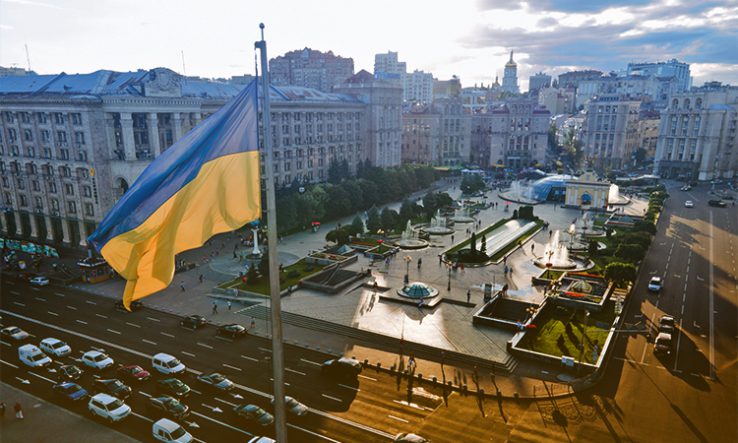
Mother and son researchers give their story after six months of war
When Olena Bazilinska, an economics professor, woke up in Ukraine on 21 February with a train ticket to Poland, she was expecting a short trip.
Six months later, she has still not been able to return home.
Between then and now, Russia invaded her home country, bringing death and devastation every day since.
Today marks six months since the invasion and it is also Ukraine’s Independence Day, celebrated annually to commemorate the country breaking away from the USSR in 1991.
For Olena, the way she left her country just before the outbreak of war was “extraordinary” as it mirrored the experience of her mother in 1945 who unknowingly left on a train right before Nazi Germany attacked the Soviet Union.
Olena says her fellow researchers have mostly remained in Ukraine while she has stayed away because her son, Pavlo Bazilinskyy, lives in the Netherlands where he works as an artificial intelligence researcher at Eindhoven University of Technology.
Olena—a researcher at the National University of Kyiv-Mohyla Academy—has been staying with Pavlo as the war continues.
Although not under threat from Russian bombs like many of her colleagues, life has still not been easy for her. Her mother, Kateryna Dufina—an engineer who worked on the Soviet Concorde—is still in Ukraine and is in an area that has been under heavy shelling from the Russians.
Research Professional News spoke to both Olena and Pavlo about their experiences and their hopes for their country.
Dual reality
While many of Olena’s colleagues are trying to move away from big cities to small villages, she said that “things are still moving forward” at Ukrainian universities, where lessons have moved online and academics are busily preparing for the beginning of the academic year in September.
“It is now like a state of dual reality as, on the one hand there is a war going on, but on the other hand we are preparing for the new academic year,” she says.
“It is as if nothing has happened and it is just a continuation of Covid, which made everything go online.”
When she got the lecturing schedule for the upcoming year, it came with a note that said lessons were online for now but they do not know if they will go back.
This is the “main problem” for her Ukrainian colleagues: they “do not know what will happen tomorrow”.
Seeking shelter
Pavlo told Research Professional News that a big issue with returning to in-person teaching is that there are no bomb shelters at many university buildings.
Some university buildings have been destroyed by Russian bombing. Olena’s previous university, Chernihiv Polytechnic National University, was severely damaged this year by Russian attacks on the area.
But she said there has since been a “collective effort” from her previous colleagues and their spouses to rebuild the university.
The building is now “surprisingly almost useable”, Pavlo said.
Hopes for the future
To help Ukrainian researchers, many European countries and academic organisations have offered a range of support, including funded placements. Some have raised concerns about this giving rise to ‘brain drain’ from Ukraine.
Olena says that although this is a concern, the majority of researchers who have left want to return, as Ukrainians have a “strong feeling of identity”.
She is positive about the future of science and research in the country.
She wants to see more support for the families of Ukrainian researchers going to Europe, as “protecting relatives is the main concern for all human beings”.
She also hopes Ukrainian researchers will be offered more help in accessing the internet and learning foreign languages in order to facilitate international collaborations.
Pavlo echoed what he had previously outlined in a speech at the EuroScience Open Forum in July, that support from other countries should have an emphasis on short-term projects.
He believes that academics fleeing war cannot commit to longer-term projects due to their desire to return home.
Once the war is over, he would like Ukraine to become a leader in open science and cross-border research. But more than this, as it looks forward to future independence days, he says it must continue being a “pinnacle of freedom”.
